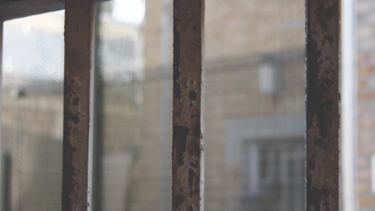Report on February visit to Napier by the All-Party Parliamentary Group on Immigration Detention
MPs from the All-Party Parliamentary Group on Immigration Detention (APPG) last week released a report following a visit to Napier Barracks in Kent carried out this February.
 The former military barracks near Folkestone continues to be used to house asylum seekers despite concerns over poor conditions. The High Court found last June that the site did not offer suitable or adequate accommodation, but the Home Office says improvements have been made and the site is safe and secure.
The former military barracks near Folkestone continues to be used to house asylum seekers despite concerns over poor conditions. The High Court found last June that the site did not offer suitable or adequate accommodation, but the Home Office says improvements have been made and the site is safe and secure.
Last week's 19-page report by the APPG can be downloaded here.
Over 300 men were accommodated at the site when the APPG visited on 2 February 2022. The MPs visiting were the SNP's Alison Thewliss, Stuart C. McDonald and Anne McLaughlin, and Labour's Bell Ribeiro-Addy.
The APPG found during their visit that the changes introduced by the Home Office to improve Napier do not go far enough and a number of serious problems remain.
The report states: "Despite numerous and repeated warnings about Napier from a range of bodies, including the High Court, independent inspectors, parliamentarians, charities and residents themselves, the changes introduced by the Home Office appear to be limited and do not address the fundamental problems at the site. Serious issues remain, for example, in relation to safeguarding, with vulnerable people including victims of torture and trafficking still being found at the site. The majority of residents are still being accommodated in 12-14 bed dormitories, suffering the associated lack of privacy, noise and sleep problems that this involves. The prison-like, criminalising atmosphere at the site was apparent from the moment of arrival, and the lack of autonomy, choice and control that residents have over their daily lives was stark. It was also obvious these and the other issues at the site would have extremely negative impacts on people's mental health."
MPs found that the overall environment at Napier was run-down, isolated, and bleak, with many of the buildings in an extremely poor state of repair. Some parts of the site had black mould, broken windows and water damage. Doors were open, possibly as a Covid-19 prevention measure, which meant the buildings were very cold.
There was a lack of privacy and private spaces at the site. The APPG reported not seeing any private spaces available for residents to use.
The lack of privacy impacted on asylum interviews, as the report explains: "Concerns persisted regarding asylum substantive interviews being conducted on-site. The Humans for Rights Network had heard reports from residents that the rooms in which interviews were conducted were not sound-proof. This made the disclosure of sensitive personal information (e.g. details of torture or trafficking) during the interview much more difficult, which in turn might affect the outcome of the resident's interview. They had also heard reports of poor quality video links, and of residents doing their interviews without having had access to legal advice."
During their visit, the APPG met some residents who had legal representatives, but there were others who did not understand the need for legal advice or how to access it. Some asylum seekers at Napier said they had receiving poor quality legal advice.
Overall, the APPG found that conditions at Napier do not allow a person to engage effectively with their asylum claim.
On safeguarding, the APPG report found: "Concerns persisted in relation to safeguarding. Despite the High Court ruling in June 2021, the Home Office did not appear to have made any changes to significantly improve the effectiveness of the 'suitability criteria' process. Charities reported that vulnerable people were still being accommodated at the site. For example, the Humans for Rights Network reported that between April and November 2021 they had encountered 32 residents at Napier who were victims of torture or trafficking. The charity noted that, since they were not in contact with every resident, the total number of such victims at the site during this time period was likely to have been higher."
In conclusion, the APPG considers that Napier and sites like it are fundamentally unsuitable for use as asylum accommodation.
The report recommends that Napier is closed as asylum accommodation with immediate and permanent effect, and that the asylum seekers currently accommodated there are instead housed in the community so that they can live with dignity.
In response to the report, a Home Office spokesperson told the BBC: "The use of Napier Barracks as contingency accommodation is vital in helping us to accommodate and support destitute asylum seekers. Significant works have been carried out to improve the conditions, management and oversight. Napier is safe, warm, dry, and provides a choice of good hot meals as well as proper laundry, cleaning and multi-faith religious facilities."